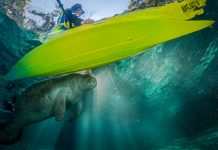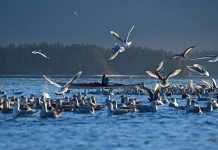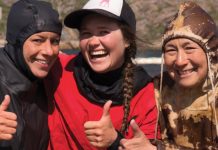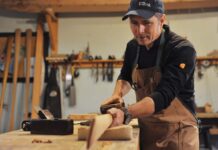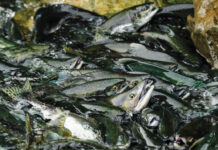Something within me craves the wild exuberance of summer in Prince William Sound. August is a riot of life.
Humpback whales dive and dine within meters of our camp. A raft of sea otters floats by, pups peaking out from their mothers’ arms. Blueberries hang so heavy that branches droop and seem to sigh with relief at being picked. My husband, Fredrik, and I decided to enjoy the abundance of August in the most visceral way possible—sea kayaking in the Sound for a month, living off the land.
With the variety of lightweight, compact and easy to prepare camping foods available, why would a person choose to paddle around eating weeds? At times I ask myself the same. Wilderness time is so precious in our busy lives. Wouldn’t an evening hike be more exciting than sitting under a tarp picking through mounds of beach greens?
Searching for food makes me notice things in greater detail. Does that mushroom have true gills or flat-topped, diverging ridges? Gulls sitting on the water in a perfect line could mark an upwelling current and good fishing.
There’s also a strong sense of tradition. Most of the world’s early explorers relied on food from the land. Not only did Lewis and Clark balance hunting and gathering with making forward progress, they also had to preserve the food they found for lean days ahead. In Prince William Sound, we knew we needed to try smoking salmon, a time-honored method of preserving food.
After the excitement of landing a muscular silver salmon from a kayak comes the tedious process of cleaning, filleting and cutting the Coho into one-inch strips and placing them in brine. The mass of slippery, briny fish in our pot reminds me of a scene I witnessed just a few days earlier. At the mouth of a small creek at low tide, salmon piled three deep fought to get up a stream that was nearly dry. Like the throng of living fish waiting for the tide to change, our strips sit in the salty brine for up to six hours.
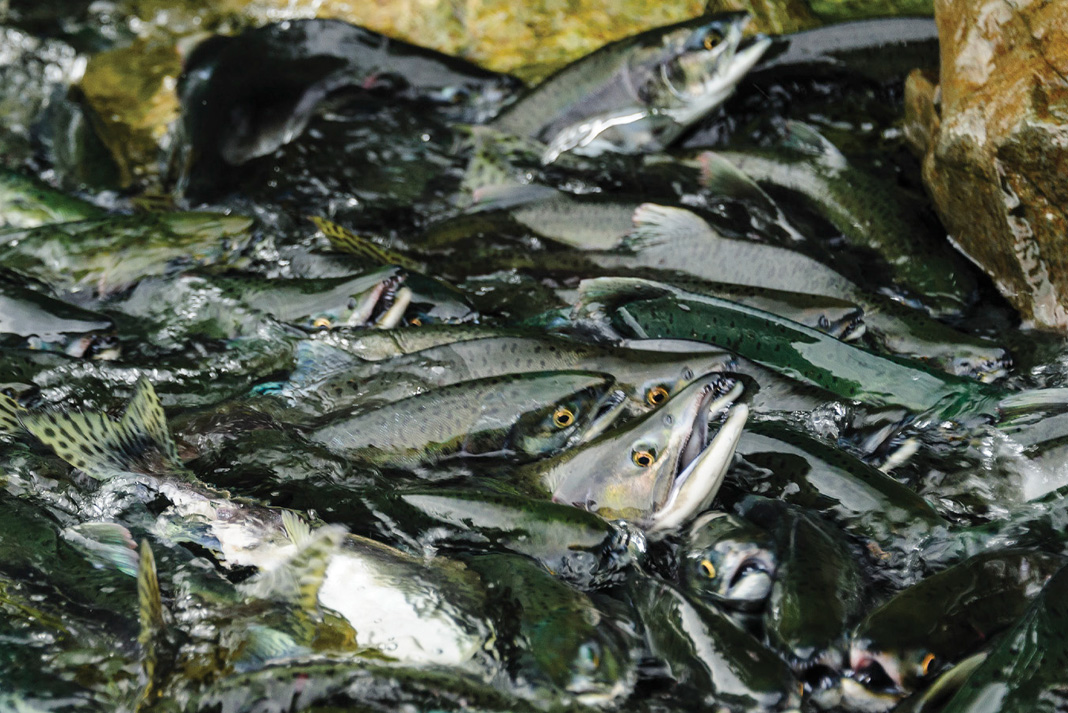
Our smoker, a simple tripod of sticks wrapped in a tarp, looks like a miniature teepee on the beach. A rack tied high in the structure holds the precious fish strips. Only the scale of our operation and the absence of kids and grandparents separate our scene from summer fish camps all over rural Alaska. Like them, we settle in, watch the tides change, tend the fire and busy ourselves with the multitude of other camp chores that subsistence living involves.
I relish the sweet illusion that by gathering my own food, this kind of life could go on forever. But summer will end. The colors will change. The bounty will disappear.
Still, bearing witness to this profusion of life, setting itself up to return next year, fills me with optimism. By eating wild foods, we are intimately linked to the world around us in a fundamental way. And, as Fredrik says, “There is something deep inside of us that longs to gather food.” NANCY PFEIFFER
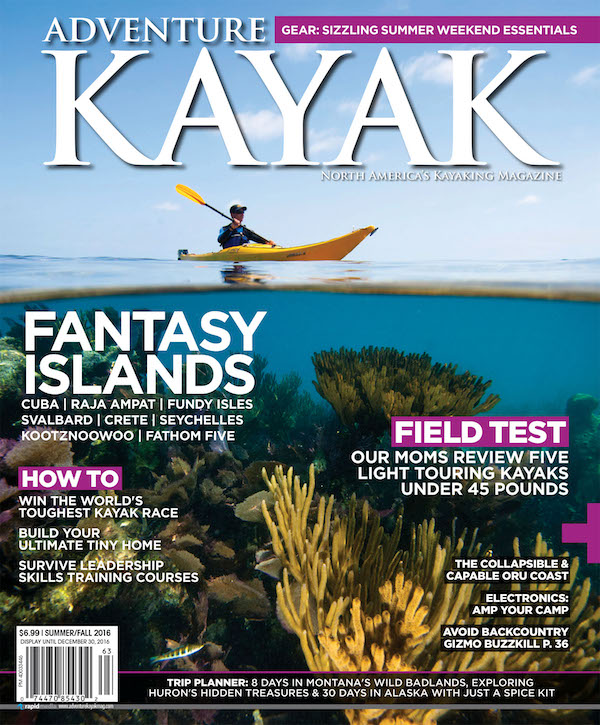
Subscribe to Paddling Magazine and get 25 years of digital magazine archives including our legacy titles: Rapid, Adventure Kayak and Canoeroots.



